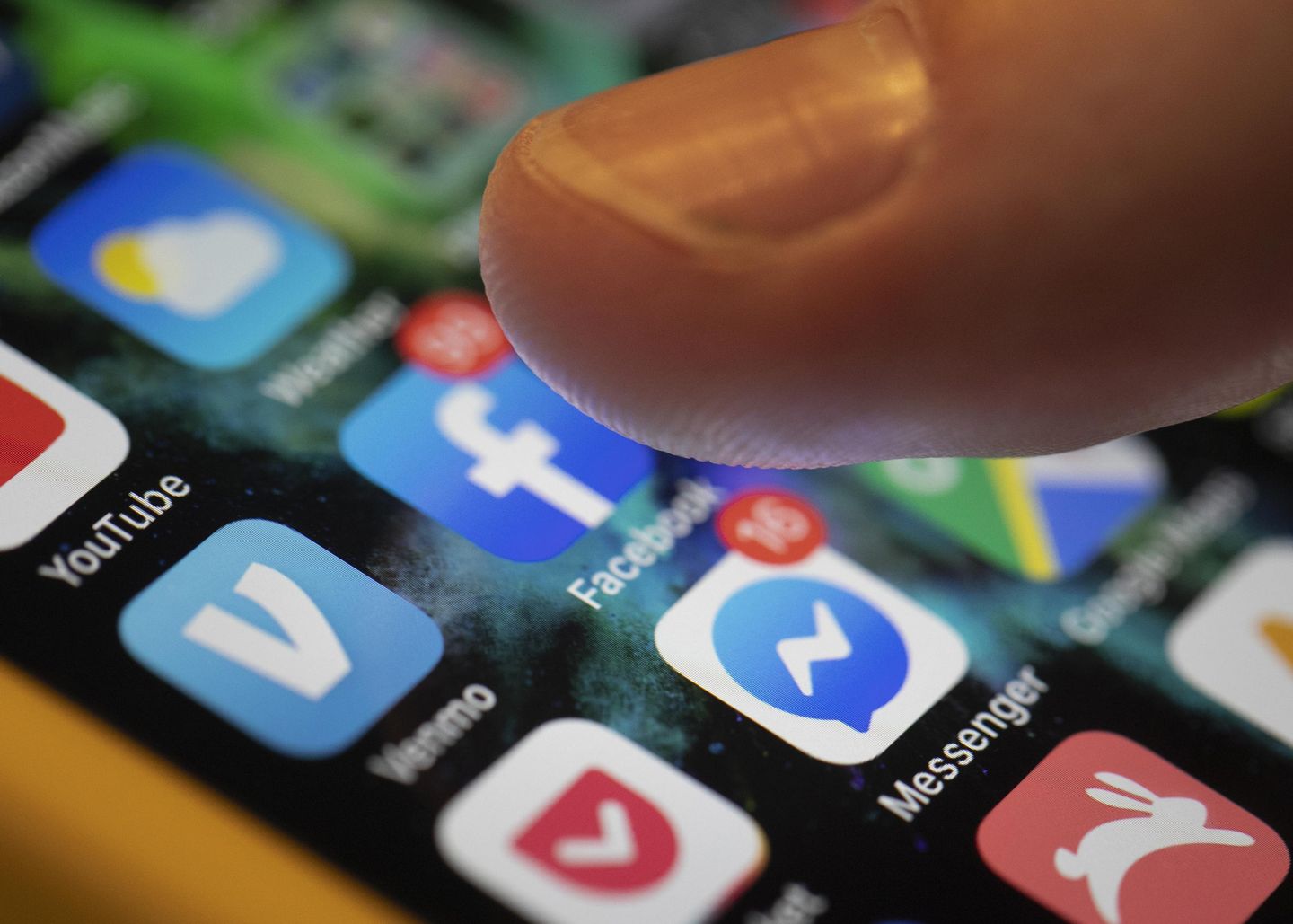
A growing number of young people are ditching their smartphones for “dumb phones” in search of quiet, focus and a little bit of their lives back, recent studies indicate.
From 2021 to 2024, 18- to 24-year-olds led a 148% spike in “brick phone” sales — while their smartphone use dropped 12%, according to a recent study from the peer-reviewed journal Partners Universal Innovative Research Publication.
It’s a shift experts are dubbing the “dopamine diet.”
“Smartphones have the same chemical reaction in the brain as drugs and alcohol,” said Melissa DiMartino, associate professor of psychology at the New York Institute of Technology, in an interview with Yahoo Life. “Looking at your phone to feel better becomes an addictive cycle that ultimately leads people to feel depressed and lonely.”
The brick phone comeback started with product nostalgia but caught fire on TikTok, digital media experts say. Under the hashtag #bringbackflipphones, Generation Z has made retro communication cool again.
Per The Guardian, HMD — maker of Nokia’s famous 3310 flip phone — said that since the phone’s 2017 relaunch, its sales had doubled as of 2023. Punkt, which brands its devices as “minimalist phones,” saw sales climb too.
Gen Z is the only demographic shrinking its digital footprint, according to a 2024 report by payment research firm PYMNTS Intelligence. The firm reported the average number of connected devices Gen Z owns dropped from 5.3 in 2019 and 2020 to 5.0 in 2023, even as the national average rose slightly from 5.0 to 5.1.
“I’ve always hated being available to everyone,” Gen-Z music producer Rana Ali, who performs in London as Surya Sen, told The Guardian. “The idea that if you send a WhatsApp to someone and they don’t respond immediately, then something’s wrong.”
Young people might be onto something, digital use experts say. A trial published in 2025 by PNAS Nexus, a peer-reviewed journal from the National Academy of Sciences, found that blocking mobile internet access — while still allowing calls and texts — improved mental health, attention and overall well-being.
After two weeks of digital detachment, 91% of participants saw improvement in their well-being. Researchers said time offline was spent socializing, exercising or going outside.
And that’s exactly what the teens in New York City’s “Luddite Club” gather each week to do with each other: spend phone-free hours in Brooklyn’s Prospect Park talking, painting or reading.
“My days are eight hours longer,” said Jameson Butler, a student at Brooklyn Technical High School. He told CBS News he joined the group after seeing his screen time spike during the pandemic.
“What we’re seeing right now is an abuse of technology — not its use,” Amanda Hanna-McLeer, a former teacher at Edward R. Murrow High School who now co-directs a documentary about the club, told CBS.
More than one-fifth of Gen Z say they wish that smartphones had never been invented, a 2024 Harris Poll conducted in collaboration with social psychologist Jonathan Haidt reports. The researchers surveyed 1,006 Gen Z adults aged 18 to 27, nearly half of whom said they wished TikTok (47%), Snapchat (43%) or X (50%) didn’t exist.
For 19-year-old Caleb in Iowa, quitting his smartphone meant cutting ties, but, for him, it was worth it.
“I put my smartphone in a cardboard box, wrapped it in three layers of duct tape and said goodbye to it for a week,” he told Yahoo Life.
He got used to it. Now, he carries a flip phone, a notebook and an MP3 player.
“I’d much rather write about my experiences in a journal, because it feels so much more personal and emotionally driven,” he said.
New York-based artist and Gen Z influencer August Lamm took a slower route to the smartphone-free life.
“I had lapses where I would feel like I really needed to use it for this one day, because I needed to listen to this audiobook on the train, or I needed the directions, and I would get sucked right back into it,” Ms. Lamm, a painter in her 20s, told National Public Radio.
She hasn’t owned a smartphone since 2022, and she’s created an illustrated guide for others to follow her lead. Next up, she aims to get rid of her laptop.
“There are a lot of things that people feel like they really wouldn’t know what to do,” she said. “And then once you’re deprived of that option, you figure it out.”
Mental health experts say the impulse to unplug is grounded in neuroscience. And “Do Not Disturb” mode doesn’t always help.
“Once you open that phone, it’s like you just opened up Pandora’s box,” said Ari Lightman, professor of digital media at Carnegie Mellon University told Yahoo News. “There’s a sort of cascading series of actions that basically snap up all your time.”
These young digital minimalists insist that dumb phones help break the loop.
“Older systems allow people to focus on one activity at a time, instead of being overrun by algorithms,” said Caitlin Begg, a sociologist and founder of the digital minimalism organization Authentic Social.
Still, it’s not always easy to make the switch in a digital culture created with smartphones in mind. One unnamed 24-year-old in Alabama told Yahoo Life she’s struggled to find in 2023 a dumb phone with 4G and GPS — but she remains resolute in her search.
“I want to feel more connected with the world around me and what media I’m choosing to consume,” she said, “rather than passively listening, watching and wasting away hours I can’t get back.”


![NYC Tourist Helicopter Falls into Hudson River, Siemens Executive and Family Among Those Killed [WATCH]](https://www.right2024.com/wp-content/uploads/2025/04/NYC-Tourist-Helicopter-Falls-into-Hudson-River-Siemens-Executive-and-350x250.jpg)






![Green Day’s Cringe Trump Diss Ends in Fire and Evacuation [WATCH]](https://www.right2024.com/wp-content/uploads/2025/04/Green-Days-Cringe-Trump-Diss-Ends-in-Fire-and-Evacuation-350x250.jpg)
![Red Sox Fan Makes the ‘Catch of the Day’ with Unconventional ‘Glove’ [WATCH]](https://www.right2024.com/wp-content/uploads/2025/04/Red-Sox-Fan-Makes-the-‘Catch-of-the-Day-with-350x250.jpg)
![Bikini Clad Spring Breakers Prove Our Education System is Failing Students [WATCH]](https://www.right2024.com/wp-content/uploads/2025/03/Bikini-Clad-Spring-Breakers-Prove-Our-Education-System-is-Failing-350x250.jpg)





